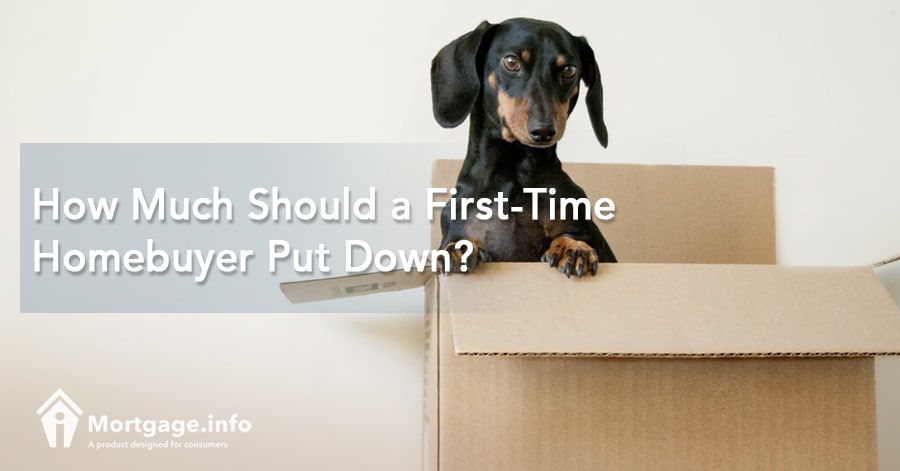
You’ve likely heard that 20% is the only down payment you should make. While it would be nice if everyone could put that much down on a home, it’s not always possible. Luckily, there are many loan programs you can use that require only a small fraction of that amount down on a home.
Looking for Current Mortgage Interest Rates? Click Here.
How do you know how much is right for you to put down as a first-time homebuyer though? It depends on the situation. No two buyers will have the same answer. Consider the following factors to help you decide how much you should put down on a home.
What Type of Financing Will you Use?
First, consider the type of financing you need. Do you have great credit and a low debt ratio? You may find that conventional financing offers the best deal. The problem with conventional financing is you’ll pay Private Mortgage Insurance unless you put down at least 20% on the home. There are two ways you can go about this:
- You can pay the PMI until you owe less than 80% of the home’s value and have it eliminated.
- You can secure a piggyback loan, which gives you an 80% first mortgage, 10% second mortgage, and then you put 10% down of your own money.
Of course, it will depend on what you can handle. Do you have 10% to put down on the home? If not, opting for the PMI may be the more affordable option for you at that point.
If you will use government-backed financing, you’ll need less money down on the home:
- FHA loans require a 3.5% down payment
- USDA loans don’t require a down payment
- VA loans don’t require a down payment
Knowing the type of loan you’ll need will give you a starting point. Just because the loan program has minimum down payment requirements though, doesn’t mean that you can’t put more down on the home. You can use the following factors to decide if you should invest more in your home now or not.
Do you Have Money for Closing Costs?
Your loan is going to cost you money. We don’t mean just on a monthly basis when you make your payments. You’ll have to pay closing costs when you get the loan. These costs can be as much as 3% to 5% of your loan amount. We’re talking several thousand dollars. If you put all of the money into the down payment, you may not have the money for the closing costs.
Talk to lenders about the closing costs and what options you have. Some loan programs allow the sellers to pay the closing costs for you. Sometimes even lenders can pay the closing costs for you. In exchange, they’ll give you a slightly higher interest rate.
Click to See the Latest Mortgage Rates.
You have to look at the big picture to see what you should do. Does it make sense to pay the closing costs yourself and decrease the amount of the down payment? Remember, this will make your payment higher because you’ll need to borrow more money. You can also opt to ask the seller or lender for help, but those options will also increase your monthly payment, which is why you need to give it long, careful thought.
Do You have an Emergency Fund?
Owning a house is a big responsibility that often comes with big expenses. What will you do if the hot water heater goes out or you need to fix a leaking faucet? If you don’t have an emergency fund to rely on, you could end up digging into your regular monthly income that covers other expenses. Suddenly, you could find yourself in financial distress over one little issue.
Rather than putting your savings down on a home, you should save some of it for an emergency fund. The amount you save depends on what you can afford. Ideally, you should have 6 – 12 months of income saved. If you can’t get to that point, at least have a few thousand dollars set aside. This way you can fix things in an emergency or pay unexpected expenses without putting your home at risk of foreclosure.
What are Your Plans?
You should also consider your plans for the future. Are you going to move soon? Investing too much cash into the home now may not give you the return you desire. If you plan to stay in the home ‘forever,’ though, putting the money into the home now can decrease the amount of interest you pay over the life of the loan. A larger down payment often means a lower interest rate too, since lender has to give you less money. This helps to decrease your overall cost of the loan as well.
Only you know how much money you should put down on your first home. Look at your finances and determine what you can afford. Don’t forget to consider your savings and your plans for the future. Taking all aspects of your finances into consideration can help you determine the best amount to put down on your first home.
